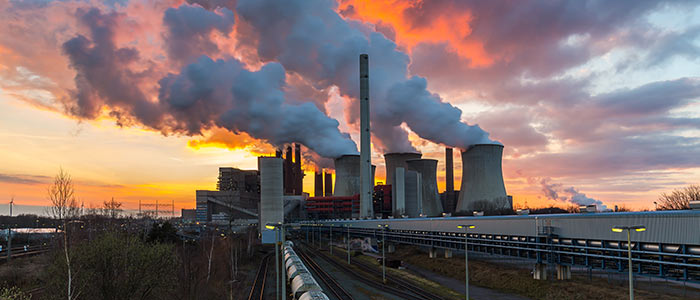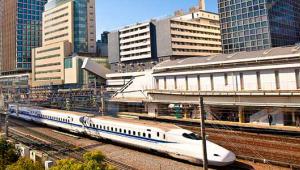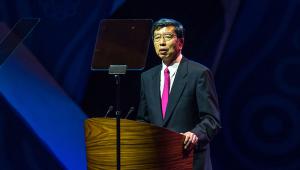Web_GreenhouseGasses_shutterstock_314808188.jpg

Greenhouse gas emissions
“Meeting the challenge of runaway climate change requires a rapid transition to a low-carbon path,” explained Vinod Thomas, director of independent evaluation at the ADB.
“But many countries remain ambivalent about this choice because of concerns this will come at the expense of economic growth and shared prosperity.”
While most governments in the region accept that the environmental impact of Asia’s rapid growth is unsustainable, low growth projections are deterring them from taking action, the bank said.
But Andrew Brubaker, main author of the ADB report, warned that delaying decisions to promote sustainable growth and climate action would be “false economics”.
He said that already worsening environmental conditions are threatening livelihoods, highlighting the poor water security in South Asia due to more frequent and intense droughts. Social cohesion is also increasingly affected, manifested in demonstrations over worsening air pollution in Beijing and Delhi.
The report said improving urban resilience and environmental issues will be a key challenge, as both the costs and benefits of Asia’s economic growth manifest themselves most visibly in cities, where populations are growing rapidly.
Thomas warned that urban air pollution, lack of proper solid waste management, degradation of fresh water sources, soil erosion, mass extinction and the destruction of biodiverse habitats could be devastating for Asia.
“These have the potential to reverse the region’s impressive economic progress, reduce the quality of life, and even cause pandemics – and this, in essence, is the reason why countries must not delay in putting their economies on an environmentally sustainable growth path.”
China is one Asian country that is attempting to curb its environmentally unfriendly practices, despite the consequences.
Rebalancing its economy to a more sustainable, service-based model, rather than one orientated around manufacturing, led the country to register its slowest growth in seven years in March.
The country was also the world’s largest investors in renewable energy in 2015, and has attempted to get a grip on the severe air pollution that blights its cities.
Yesterday, the World Bank approved a $500m to help Hebei, a northern Chinese province reduce air pollutants.
Hebei has one of the highest concentrations of pollutants in the Jing-jin-ji region of China, and is responsible for about 70% of its emissions due to being home to a high number of polluting industries, vehicles and a large agricultural sector.













